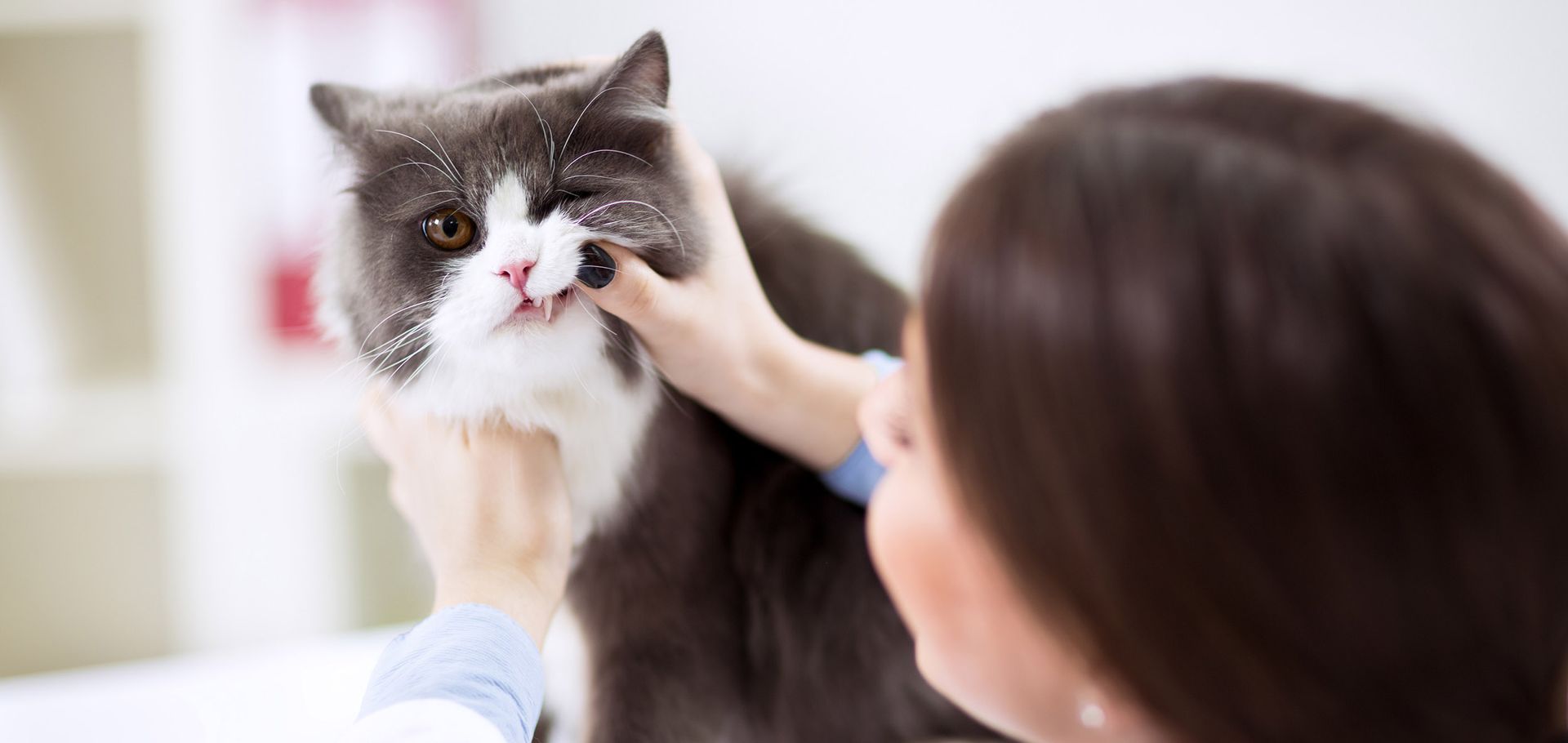
A clean set of teeth is one way of keeping your cat happy and healthy. Depending on your cat’s personality, cleaning their teeth at home can be daunting! That being said, whether you can successfully clean your cat’s teeth or not, is at-home care enough?
Just like humans need to visit their local dentist or orthodontist for regular check-ups, even if we brush our teeth regularly, cats also require regular professional dental cleanings. In this article, we'll clarify why dental cleaning is important for your furry friend and highlight key information that you should know as a pet owner. Keep reading to find out more!
Do Cats Need Their Teeth Cleaned?
Yes, regular dental cleaning helps maintain your cat’s oral health. It can prevent various dental issues by addressing common problems such as plaque buildup, tartar accumulation, and gum disease.
Regular dental cleaning sessions also identify and treat dental abscesses and tooth decay, improving the cat's overall well-being. Not only does dental cleaning alleviate discomfort, but it also reduces the risk of more serious health complications, including heart disease and feline odontoclastic resorptive lesions.
Why Do Cats Need Dental Cleaning?
Regular dental cleaning helps maintain your cat’s oral health. It can prevent various dental issues by addressing common problems such as plaque buildup, tartar accumulation, and gum disease.
Regular dental cleaning sessions also identify and treat dental abscesses and tooth decay, improving the cat's overall well-being. Not only does dental cleaning alleviate discomfort, but it also reduces the risk of more serious health complications, including heart disease and feline odontoclastic resorptive lesions.
It’s crucial for every pet owner to understand the importance of dental cleaning as it’s a huge factor in better oral care for your feline friend. Here is why regular feline dental cleaning is important.
Helps in Treating Common Dental Issues
One of the primary reasons cats need dental cleaning is its effectiveness in treating common dental problems. The accumulation of plaque and tartar can lead to gingivitis and periodontal disease, causing pain and discomfort. Dental cleaning removes these deposits, reducing inflammation and preventing the progression of these issues. During the cleaning, the vet can also see any existing dental problem, such as dental abscesses, preventing further complications and promoting a healthier mouth.
Spot Problems Before They Escalate
Regular dental cleanings offer a proactive approach to feline oral health. During these cleanings, veterinarians can thoroughly examine your cat's mouth, identifying dental issues before they escalate. This early detection allows for prompt treatment, preventing more serious conditions from developing. Dental cleanings can help catch problems like fractured teeth, inflamed gums, or signs of oral tumors, ensuring your cat's dental health is monitored closely.
Keeps Your Cat’s Breath Fresh
Bad breath in cats can be a sign of underlying dental problems. Dental cleaning helps maintain fresh breath by removing the bacteria contributing to foul odors. Cleaner teeth and healthier gums make your cat's breath more pleasant.
Reduces the Risk of Gum Disease and Tooth Decay
Gum disease and tooth decay are common issues in cats, but regular dental cleanings can significantly reduce their risk. By removing plaque, tartar, and bacteria from the teeth and gums, these cleanings prevent the progression of gingivitis and more advanced periodontal disease. If you address these issues early, you can preserve your cat’s health and avoid or minimize invasive treatments.
Prevents the Development of Heart Disease
Keeping your cat's teeth clean isn't just about their mouth; it can also make their heart healthier. Research suggests that problems in the teeth might be connected to heart issues in cats. When bacteria from the mouth enter their bloodstream, it can cause heart problems. But, if you regularly clean your cat's teeth, you can lower the amount of harmful mouth bacteria, which reduces the chance of heart disease and keeps your cat healthier overall.
Reduces the Risk of Feline Odontoclastic Resorptive Lesions
Feline odontoclastic resorptive lesions (FORLs) are painful dental conditions where the tooth's enamel is eroded, leading to exposed dentin and discomfort. Dental cleanings can help identify and manage these lesions, prevent further progression, and reduce the cat's pain. Early detection and treatment during cleanings can help improve the cat's quality of life and prevent tooth loss.
Cat Dental Cleaning Risks & Precautions
Additional risks associated with dental cleaning may include:
Gum irritation or bleeding: This is usually minor and resolves quickly.
Tooth fracture: In rare cases, a weakened tooth may fracture during the cleaning process.
Infection: Although uncommon, there is a slight risk of infection following the procedure.
How Often Should My Cat Get Dental Cleaning?
If you’re wondering how often your cat should undergo dental cleaning, that answer will depend on many factors such as age, breed, genetics, and current dental health. It's generally recommended to have a professional dental cleaning performed by a veterinarian at least once a year. However, some cats, especially those prone to dental problems, might require more frequent cleanings. Consulting with your veterinarian can help determine the optimal schedule for your cat's dental care.
When is it Time for My Cat to Get a Dental Cleaning?
Recognizing when your cat needs a dental cleaning involves observing signs of dental problems. These signs can include bad breath, difficulty eating, pawing at the mouth, drooling, and changes in behavior. If you notice any of these symptoms, it's likely time for your cat to receive a dental cleaning. Regular dental check-ups with your veterinarian can help identify cleaning needs before problems escalate. Early intervention ensures your cat's oral health is maintained and prevents more severe dental issues from developing.
How Much Does Cat Teeth Cleaning Cost?
The cost of a cat teeth cleaning can vary depending on several factors, including your cat's age, health status, the severity of their dental issues, and your location.
A typical cleaning may cost between $100 and $400, while more complex procedures involving extractions or other treatments can be more expensive. However, the cost of preventive care is often far less than the cost of treating advanced dental disease.
Tips for Keeping Your Cat's Teeth Clean
In addition to regular brushing, here are several other strategies how to keep cats teeth clean and healthy:
Dental diets: Specially formulated diets help reduce plaque and tartar buildup.
Dental treats: These treats are designed to promote chewing and help scrape away plaque.
Water additives: These can help freshen their breath and reduce bacteria in the mouth.
Regular veterinary checkups: Your veterinarian can monitor your cat's oral health and recommend appropriate preventive care.
By implementing these tips and prioritizing your cat's oral health, you can ensure a happy, healthy smile for years to come.
Schedule a Dental Cleaning For Your Cat at Brewerton Hospital for Animals!
We know how much you love your cat and want what’s best for them. Here at Brewerton Hospital for Animals, we have an amazing team of veterinarians who are great at what they do. With our dental care, we will ensure your feline friend is comfortable and safe throughout the entire process while ensuring their teeth get properly cleaned.
Set an appointment so your cat is one step away from achieving healthy and clean teeth!
SHARE THIS ARTICLE




